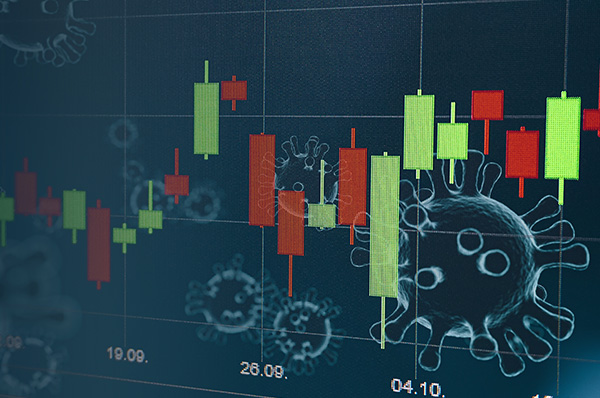The Pros of Trading During a Pandemic
Throughout the coronavirus pandemic, we’ve discovered that there are numerous downsides during a global crisis. After all, certain industries have been decimated by the pandemic and news releases are causing huge share price drops that are difficult to predict. For example, when the news broke that the Pfizer vaccine was 90% effective, Zoom, Ocado and B&M Bargains all saw their share price drop by at least 10% in a single day, while Just Eat and Netflix saw theirs drop by 9%.
- A
- A
- A

That being said though, there are also pros to trading during the pandemic because opportunities do still arise. For example, the same news caused the share price of SSP to rise by over 50%, while shares in Rolls-Royce and Cineworld rose by 40% or more. With this in mind, let’s look at the different ways we can trade and how you can benefit from trading these assets during a pandemic.
Hedge Funds
According to the results of a recent survey of 250 global fund managers, 86% of respondents thought that the pandemic had been either ‘negative’ or ‘very negative’ for funds.
However, although no form of investment is exempt from the pressures that exist in a pandemic, hedge funds have several benefits over other forms of investment. For example, hedge fund managers usually deal with liquid assets, which are great in a volatile environment.
But, to minimise the risks associated with trading during a pandemic, it’s clear that professional traders need to be organised. By assessing the operational, technological and regulatory trends that will affect future investments in a post-pandemic landscape, hedge fund managers will be able to prepare their portfolios for the other side of the pandemic. In doing so, they should look for flexible businesses that have increased their use of technology for daily operations, as these are well-placed to be strong performers in the coming years.
Forex
The coronavirus pandemic has created a number of unique opportunities for those involved in forex trading. As each country has handled the pandemic differently, investors have seen the forex market become increasingly volatile over the past few months.
For example, back in March, the pound plunged to its lowest level against the dollar in 35 years when lockdown was announced. But, post-lockdown, the value of the pound rose sharply, reaching a seven-month high in November. Then, following the announcement of the second lockdown, it plunged once more.
Many of these huge price swings hinge on a singular governmental policy announcement, so forex traders are advised to double down on their technical analysis in order to make the most of opportunities that arise. With many countries now entering technical recessions, this is arguably more important than ever as those who are aware of key moments in the economic calendar are likely to be ahead of the markets.
Stocks
As it looks like an effective vaccine is on the horizon, now is a great time for investors to evaluate which companies are set to thrive amid the recession and provide good long-term returns.
Remember though, the vaccine shouldn’t be considered a ‘silver bullet’ because many of the issues facing developing economies are structural. As a result, even though we’ve seen huge price rises for airline companies and automobile manufacturers recently, investors should remain cautious and look for investments in safe haven assets, which may provide more reliable returns than individual stocks and shares. Since the start of the year, the FTSE 100 has fallen by around 27%, and this may present a good investment opportunity because many of the stocks are undervalued.
In summary, although 2020 has been a choppy year for investors, the news of a vaccine shows that we’re emerging from the other side of the pandemic. Similarly, as we’ve been living with the virus for over six months, we can now also begin to see trends emerge. Looking ahead to 2021, it’s clear that investors need strategies that will allow them to move quickly between positions, as structural economic weaknesses mean prices could still be volatile. As a result, now is the perfect time to assess your portfolio and diversify it in order to protect against risks. Opportunities will arise over the next six months and, by doing the legwork now, you’ll be well-positioned to pounce on these favourable price movements.
Subscribe to 
Never miss the stories that impact the industry.






